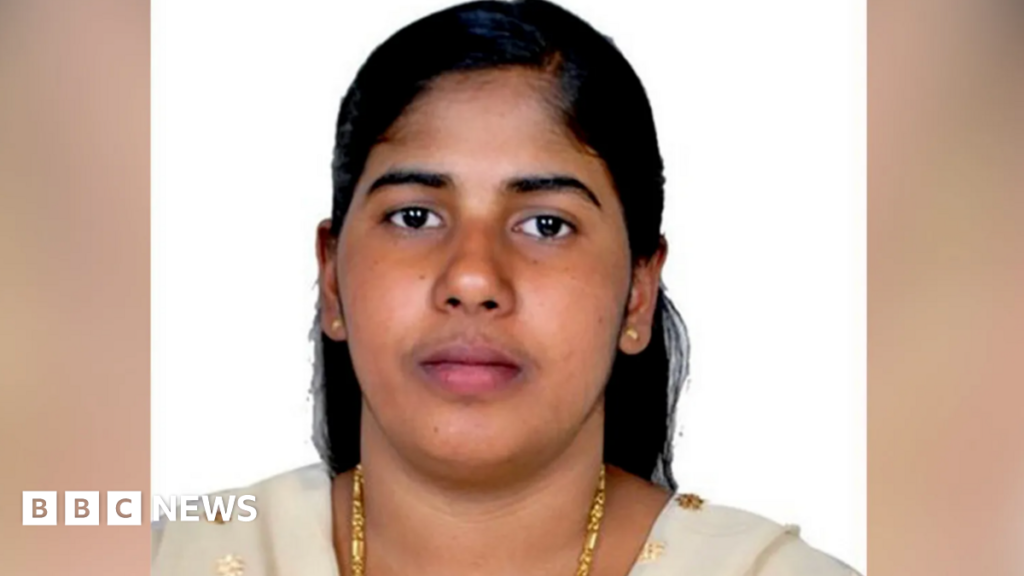Family members of an Indian nurse on death row in war-torn Yemen say they are pinning their hopes on a last-ditch effort to save her.
Nimisha Priya, 34 years old sentenced to death for the murder of a local man – her former business partner Talal Abdo Mahdi – whose mutilated body was discovered in a water tank in 2017.
She was booked into the central prison in the capital, Sana’a, and will soon be executed, and Mahdi al-Mashat, president of the Supreme Political Council of the Houthi rebels, approved her execution this week.
Under the Islamic judicial system known as Sharia, the only way to stop the death penalty now is to obtain a pardon from the victim’s family. For months, Nimisha’s relatives and supporters have been trying to do so by collecting diya, or blood money, to be paid to the Mahdi’s family, and negotiations are underway.
But with time running out, supporters say their hopes are pinned entirely on the family’s decision.
With the presidential sanction, prosecutors will again seek consent from Mahdi’s family and ask if they have any objections to the death penalty, said Samuel Jerome, a Yemeni social worker who has power of attorney on Nimisha’s behalf. mother
“If they say they don’t want to and can’t pardon her, the sentence will be stopped immediately,” he said.
“Forgiveness is the first step. Only then will it be decided whether the family will accept the blood money.”
Under Yemeni law, Nimishi’s family cannot directly contact the victim’s family and must hire negotiators.
Subhash Chandran, a lawyer who previously represented Nimishi’s family in India, told the BBC that the family had already raised $40,000 (£32,268) for the victim’s family. The money was given in two tranches to lawyers hired by the Indian government to negotiate the case (the delay in sending the second tranche affected the negotiations, Mr Jerome says).
“Now we need to explore the possibilities to discuss with the (victim’s) family, which is only possible with the support of the Indian government,” Mr Chandran said.
India’s Ministry of External Affairs said it is aware of Nimisha’s situation and is providing all possible assistance to the family.
Her family is worried, but also hopeful.
“Nimisha doesn’t know what goes on behind the prison gates,” said her husband, Tony Thomas, who spoke to her in the hours before the death sentence was approved. “All she wants to know is if our daughter is okay.”
Nimisha’s mother is now in Sanaa, having traveled there last year after her trial in India allowed, external she will go to the region controlled by the Houthi rebels. Since then, she has met her daughter twice in prison.
The first meeting was very emotional. “Nimisha saw me…she said I was weak and asked me to be brave and that God would save her. She asked me not to be sad,” her mother Prema Kumari told the BBC.
On the second occasion, Ms. Kumari was accompanied by two nuns who prayed for her daughter in prison.

